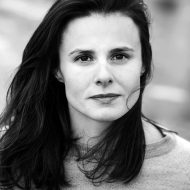Halka—a woman. Halka—a lover. Halka—a mother. Halka, a person from nowhere. A stranger, even though apparently the same as others. Excluded, even though allowed to live in a love duet, in a community. The eponymous heroine of Moniszko’s opera has many times returned to the Polish stages since its premiere in Vilnius in 1848. It used to be a story about a mésalliance of a young master with a peasant girl and a parable of social stratification. What will it turn out to be today? In a world existing after an over-dreamt revolution, where the topic of exclusion has moved on from the area of serfdom to the area of economic class system? What will the heroine clash with in a new social hierarchy, in a world torn by disputes about the future of a multicultural Europe?
PRODUCTION
Agnieszka Glińska is a director known for her concentration on character psychology. Alert to human perplexities, in her theatre productions she knocks the characters out of usual patterns, she moves us through combining the tragic with the comic. Her inadequate heroine entangled in a passion, and then betrayed and abandoned, will be seen in the full register of emotions—insightfully and up close. The dances and polonaises, along with Moniuszko’s entire palette of Polishness will surprise us by the potential with which it lends itself to updating.
Text: Ula Ryciak for the Grand Theatre—National Opera
Biographical notes: Aleksandra Piętka / Grand Theatre—National Opera
World premiere: 1 I 1848, Vilnius
Premiere of this production: 8 VI 2019, Grand Theatre—National Opera
















